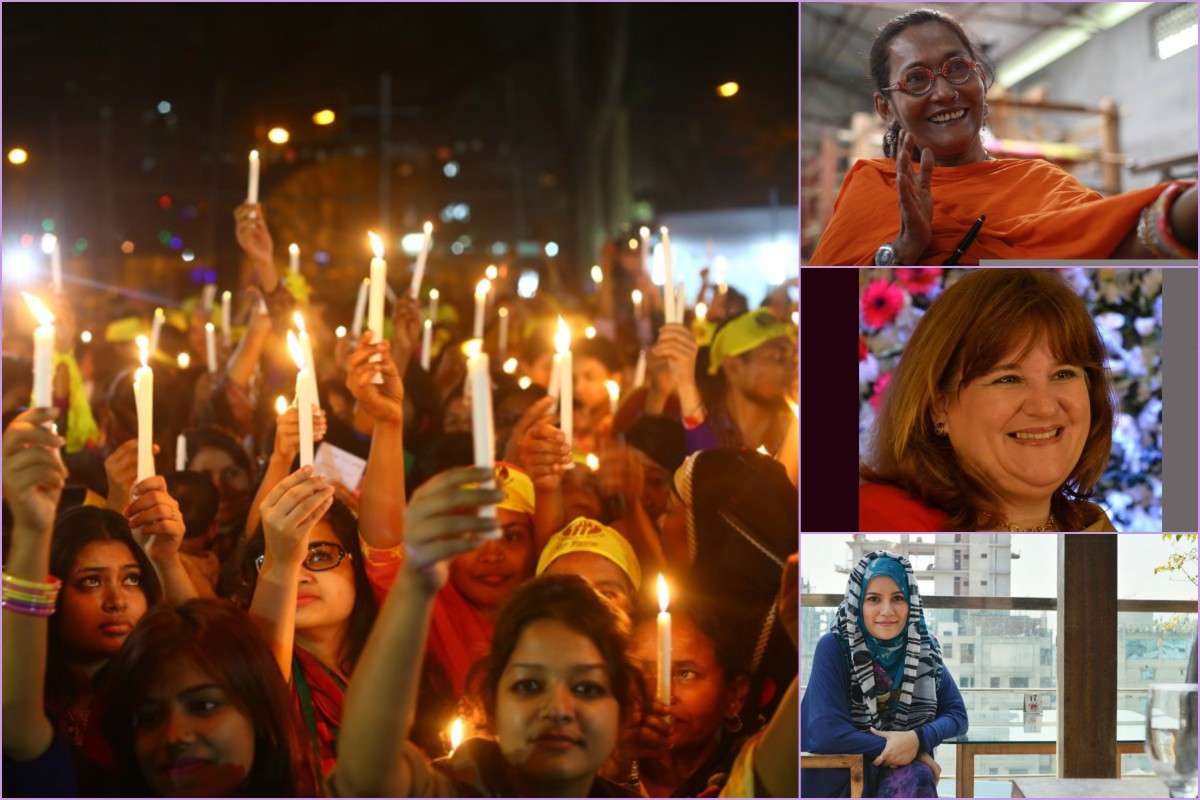
This year's theme proposed by the International Women's Day campaign is "Pledge for Parity." The theme of gender parity is critical for the advancement of women across board with the World Economic Forum estimating that the global gender gap would not close entirely until the year 2133.
For ensuring parity for women, inclusion into the workforce is an important parameter. Workplaces need to be safe and welcoming to the women. Unfortunately, that is not the case in most parts of the world. However, in Bangladesh the scenario is much better compared to many similar countries. According to ILO, Bangladesh has the eighth lowest gender gap in political empowerment in the world. As ILO economist Sameer Khatiwada wrote in a recent blog post: In the economic sphere, women have played a vital role as well, as evidenced by the importance of the ready-made garment (RMG) sector. While the share of men and women employed in manufacturing is roughly the same, the vast majority of RMG sector workers are women – 80-85 per cent. And, Bangladesh’s economic success in the last two decades is in large part due to the RMG exports to Europe and North America. Movig further Khatiwada added: "In addition, Bangladesh has experienced significant improvements in women’s health over the past three decades. Women’s life expectancy, for example, increased from 54.3 years in 1980 to 69.3 years in 2010, one of the largest increases in the region."
Being said that, Bangladeshi women continue to face challenges when it comes to playing leadership roles or starting business. The number of women starting new companies, especially startups, is slim. According to Future Startup Data, there are very few startups founded by women doing well in Bangladesh. It is often hard to find early stage tech companies founded by women and women are often taken lightly in the space. However, there are bold women as well who are breaking the glass-ceiling and starting their own companies.
Last year, we took time to talk to few women entrepreneurs to find out about problems they face when starting and running a business and we also asked few successful and hard working women entrepreneurs to share few lessons they learned from their journey. Compilation of both follows.
[su_divider top="no" text=" " divider_color="#e8e7e6" link_color="#edde29" size="1" margin="10"][/su_divider]
Ferdousi Jasmin Mala, a SME entrepreneurs based in Rangpur started her business against the will of her family. ‘Initially it was very difficult to convince my in-laws, said Mala, and ‘my neighbours were always making comments on me and my work. It was very difficult to work as woman. But I have always been passionate about the work I’m doing now and hence I managed to survive and continue”
Advocate Khalid Yahyea, Lecturer, Department of Law, Bangladesh University, said, “Legal formalities are required for running an enterprise which becomes an upheaval task on the part of a women entrepreneur because of the prevalence of corrupt practices in government offices and procedural delays for various licenses, electricity, and water and shed allotments.”
[su_divider top="no" text=" " divider_color="#e8e7e6" link_color="#edde29" size="1" margin="10"][/su_divider]
Time and again, we interviewed, featured, listened to extraordinary women doing great things from all walks of life. We have learned a great deal from all their stories. Here is such six lessons from lessons Bangladeshi women entrepreneurs who have embarked on uncharted path and managed to continue.
Bibi Russell, Founder, Bibi Productions
“Stay focused. Money is not everything. There are many ways to make money. Choose one that also does some good for society. You also have to learn how to revolve money. I worked and learned how to make a 10 taka to 12. So, you have to know how to make it revolving.”
Hanium Maria Chowdhury, Founder, Tahoor
“A straight life does not make good story. Our life does not change when we are in peace, it changes when we encounter challenges and problems that are bigger than life itself. It changes when we choose to be adamant and make the choice when it is difficult to make one.”
